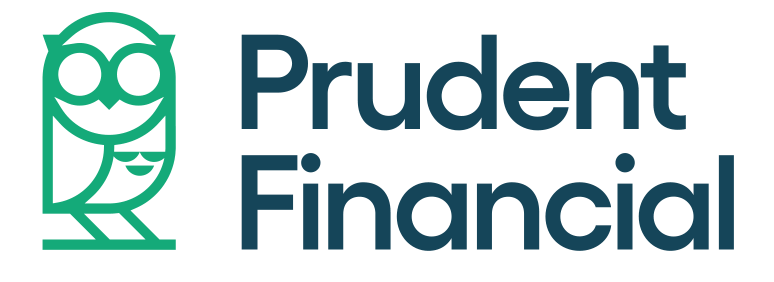
People can fall into debt for a variety of reasons, the majority of which are specific to your financial situation. People sometimes fall into debt because of circumstances out of their control and of no fault of their own. Inability to pay bills, student loans, credit card debt and other expenses on time leads to paying interest and other late fees. Budgeting is critical to avoid falling behind on payments and having to pay high interest on balances outstanding on credit card.
Covid-19 and your finances
Due to Covid-19, many Canadians are facing layoffs and temporary workplace closures. In May 2020, the unemployment rate rose to 13.7 which is the highest percentage seen in more than four decades of comparable data. According to the World Bank, the pandemic could push an additional 150 million people into extreme poverty by 2021.
In Canada, public health experts are saying that we’re currently in a second wave. The government has again put in place new restrictions on dining in at restaurants and exercising at indoor fitness centres. Many businesses are experiencing a cashflow issues and are having difficulty staying afloat. As a result, workers are being laid off, companies are reducing hours and many workers are making less money.
Households will continue to struggle
A senior economist at Royal Bank of Canada made the following statement “We remain concerned that some households will still struggle to keep up with their debt payments over the next year amid a slow economic recovery and challenging labour market conditions — even with government support being extended.”
Also, it has been determined that Canadians owe roughly $1.77 in debt for each dollar of disposable income. Source: https://globalnews.ca/news/5898193/canada-household-debt-income-ratio-q2-2019/
What are your options for dealing with personal debt?
- Budgeting – it sounds pretty obvious but there are a surprising number of households who fly by month after month with no real budget in place.
- Have a Comprehensive understanding off all your expenses and most importantly the amount spent on non-essential expenses.
Triggers
Examine what triggers your spending and remove that trigger. For instance, unsubscribe to receive emails from non-essential stores you shop at and avoid splurging when products are offered at a discount. Additionally, you should take steps to care for physical and mental health to avoid making errors in judgement and impulsive purchases.
Budget Basics
- Calculate how much needs to be put aside for each expense and take into account the worst case scenarios.
- Ensure income is greater than expenses and try to save for unforeseen expenses (i.e. car repair, medical expenses, broken phone)
- Have a system for tracking expenses, especially online transactions. It is important to be disciplined and live within your means. You should be aware how much you can afford to spend on a daily basis. One suggestion could be to install a spend tracking app on your phone.
- Consolidating debt. If you are finding the numbers aren’t adding up, consolidating debt through a home equity loan may make more sense than paying down high interest on credit cards
- File a formal insolvency proceeding (see below)
- A Consumer Proposal (see below)
Unfortunately, if you live from paycheck to paycheck and do not save it is a recipe for disaster. The reason being is as soon as an emergency strikes you are forced to extend existing debt or obtain new financing. It’s important to consider, in these difficult times what resources are available. Some lending agencies are providing payment deferral options to help Canadians through this unprecedented time in our history. As well, Government programs continue to be offered. To learn more about government relief programs and payment deferral options visit the the government of Canada website website.
Personal Bankruptcy
Many people associate Bankruptcy with being financially irresponsible and careless. However, individuals file Bankruptcy for a wide array of reasons. For instance, many become insolvent because of a large unexpected medical expense or divorce. According to the Government of Canada, 26% of Canadians do not have an emergency fund sufficient enough to cover three months of expenses.
The Canadian Government describes bankruptcy as a legal process designed to relieve honest but unfortunate debtors of their debt. Bankruptcy is designed to help individuals have a fresh start after financial difficulty. Not being able to pay monthly bills on time and only making minimum payments on credit cards is not sustainable.
Consumer Proposal
A lesser known option than Bankruptcy is a Consumer Proposal. A Consumer Proposal is an offer to creditors to pay a percentage of what is owed or extend the amount of time to pay off debt. It can also be a combination of the above and creditors vote to accept or reject the proposal. In a Consumer Proposal you will generally pay less than what is owed and interest will stop as of the date of filing.
In both a Bankruptcy and Consumer Proposal, it is required for the debtor to meet with a LIT (Licensed Insolvency Trustee). Upon filing a Consumer Proposal or Bankruptcy, a stay of preceding is immediately put in place. This means that all legal actions and even wage garnishments are stopped although there are exceptions (i.e. spousal or child support).
The major downside to a Bankruptcy or Consumer Proposal is that your credit will be negatively impacted. It is important to note that your credit score may have already been damaged by late or delinquent accounts on your file. Therefore, a formal insolvency proceeding might be the only way to put you back on track.
Conclusion
In Canada, we are facing a social and economic crisis as a result of health measures aimed at slowing spread of Covid-19. If you, a family member or a friend are struggling to keep up with monthly payments please know that help is available. Prudent Financial offers equity loans which can be used to consolidate debt for anyone regardless of credit. In addition, Prudent Financial can help determine if you would benefit from one of the other debt control methods described above. For more information consult one of our loan officers at 1-888-852-7647 or visit our website at PrudentFinancial.net
